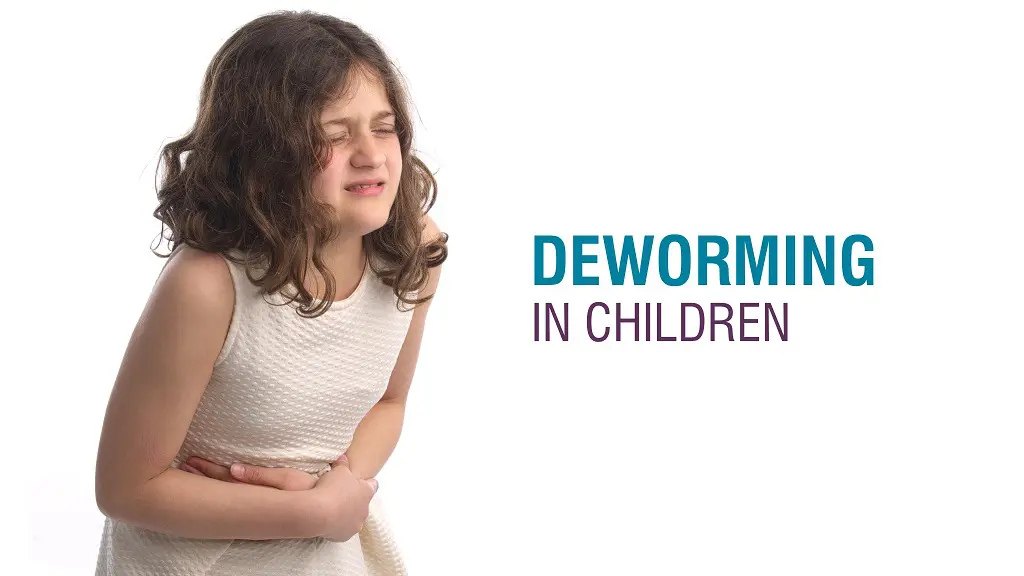As parents, your child’s health and well-being are always at the heart of everything you do. From vaccinations to nutrition, every step you take contributes to your child’s overall development.
One area that often goes unnoticed, but can significantly impact your child's health, is the presence of intestinal worms in children. These parasitic infections are common, especially in poor sanitation or hygiene areas. Fortunately, regular deworming can help protect your child from these invisible but harmful threats.
This guide provides a comprehensive overview of deworming: what it is, why it’s important, how to recognise signs of worms in kids, and how you can help prevent them with a few easy, practical habits.
What Are Intestinal Worms?
Intestinal worms are parasites that live in the gastrointestinal tract. According to the World Health Organization (WHO), soil-transmitted helminths, such as roundworms, whipworms, and hookworms, are among the most common infections, affecting approximately 24% of the world’s population. This is particularly prevalent in areas with poor sanitation and hygiene*.
Children are especially vulnerable to these infections because they often play in the soil, come into contact with unclean surfaces, and are still learning proper hygiene practices. Worms can enter a child's body through contaminated food or water, or direct contact with infected soil (often via hands, feet, or objects that are later put into the mouth).
Once inside the body, these parasites can live in the intestines and lay eggs, disrupting the body’s ability to absorb essential nutrients. This can lead to malnutrition, stunted physical and cognitive growth, anaemia, and a weakened immune system. If left untreated, severe cases may result in complications such as intestinal blockage, persistent fatigue, or other long-term health issues.
Symptoms of Worm Infections in Kids
While some children may not exhibit obvious symptoms, others may show signs that should not be ignored. Common symptoms of worms in kids include:
- Abdominal pain or discomfort
- Loss of appetite or frequent hunger
- Weight loss or failure to gain weight
- Fatigue and lethargy
- Nausea, vomiting, or diarrhoea
- Itchy rash or irritation around the anal region
- Difficulty sleeping due to discomfort or itchiness
- Anaemia (low red blood cell count)
- Blood in the stool (rare but concerning)
- Painful or frequent urination in some cases
If your child shows any of these signs, it’s advisable to consult a doctor for evaluation and possible treatment.
The Importance of Deworming in Children
Deworming is a safe and effective way to remove intestinal parasites and support your child’s overall health. By eliminating these worms, deworming allows the body to absorb essential nutrients properly, which is vital for healthy growth and development.
In many regions, especially those with poor sanitation or high infection rates, routine deworming in children is recommended every 6 to 12 months.*
While deworming medications are generally effective and well-tolerated, they are most beneficial when combined with good hygiene and preventive care. Regular deworming can help prevent long-term complications, reduce the risk of malnutrition, and support healthy weight gain.
READ: Child Safety at Home
How to Deworm a Child
Deworming children involves giving safe, single-dose medications such as albendazole (400 mg) or mebendazole (500 mg). This preventive treatment is usually recommended once or twice a year, depending on how common worm infections are in your region. According to WHO, routine deworming is advised for all children aged 12 months to 12 years (and in some cases, up to 14 years) in areas where 20% or more of children are affected by soil-transmitted worms.*
In places with very high infection rates (over 50%), deworming should be carried out twice a year for better protection. For children under 24 months, a lower dose (albendazole 200 mg) is recommended to ensure safety.
It’s always best to consult a doctor before giving any deworming medication, especially if your child is showing symptoms of a worm infection or if you live in an area with poor sanitation or a high risk of transmission. A doctor can help guide the right timing and dosage for your child’s needs.
READ: 5 Most Common Digestive Disorders in Kids
How to Prevent Worm Infections in Children
Preventing worm infections begins with good hygiene and a clean environment. Reducing exposure from the start can minimise the need for frequent deworming and support your child’s healthy growth and development. Here are some practical tips for parents:
- Keep the surroundings clean to reduce exposure to contaminated soil and surfaces.
- Encourage regular handwashing, especially after using the toilet, playing outside, and before eating.
- Teach your child to remove footwear when coming indoors and to wash hands after outdoor play.
- Discourage playing barefoot in soil, mud, or grassy areas, as these can be sources of worm eggs.
- Make sure your child only uses clean and well-maintained swimming pools.
- Thoroughly wash fruits and vegetables before consumption, and avoid giving your child raw or undercooked meat or vegetables.
- Ensure safe drinking water. Avoid water from public tanks unless it has been properly treated or boiled.
READ: 5 Tips to Manage Your Child’s Nutrition and Lifestyle
Conclusion
Worm infections are a common but preventable health concern in children. As a parent, being informed and proactive can make a significant difference in your child’s growth, immunity, and overall development. Regular deworming, along with good hygiene and a clean environment, can help ensure your child stays healthy, active, and free from the burden of parasitic infections.
If you suspect your child may have a worm infection or are unsure when to deworm a child, consult your doctor. Your child’s well-being is worth every step.

